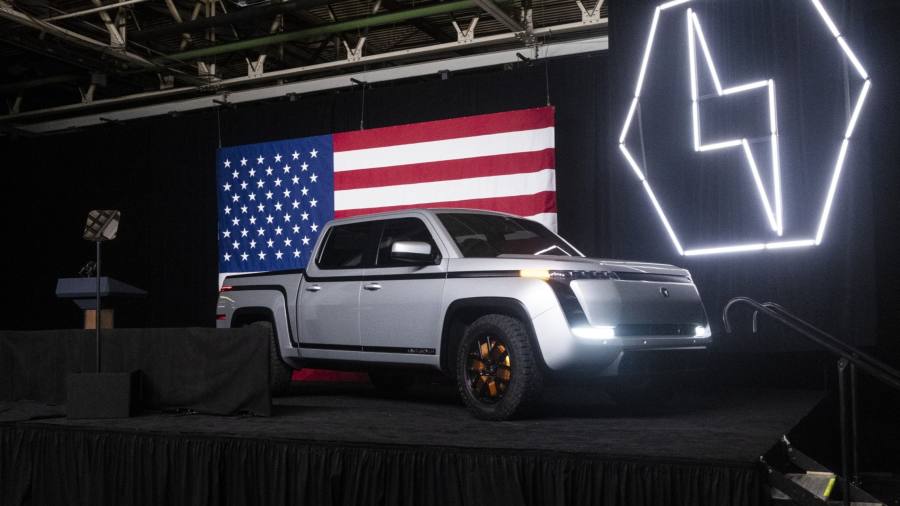Receive free Electric vehicles updates
We’ll send you a myFT Daily Digest email rounding up the latest Electric vehicles news every morning.
The flagship truck of Lordstown Motors is known as the Endurance, a metaphysical state the electric vehicle maker has notably failed to achieve itself. On Tuesday, the US start-up filed for bankruptcy protection just four years after it was founded and two years after its US listing via a “blank cheque” merger.
Since 2019, Lordstown has raised capital approaching $1bn. It has manufactured just 65 Endurance vehicles. According to court papers, legal expenses have cost it $60mn, or about a $1mn per truck.
Those expenses are only going to grow. As a part of the bankruptcy the company is suing partner Foxconn. Lordstown alleges the Taiwanese contract manufacturer did not meet operational or financial commitments. Foxconn denies any wrongdoing.
Lordstown made an ambitious bet on a promising technology in an era of optimism and cheap cash. When the going got tougher, it had seemed a smart bet to bring in a capable partner.
Lordstown first took an investment from Foxconn in 2021. The contract manufacturer later bought the start-up’s auto plant — previously owned by General Motors in Lordstown, Ohio — for $230mn This became a backbone for its foray into auto production. At one point, tech investor SoftBank wanted to work with Foxconn on making an EV in Lordstown.
The US start-up alleges Foxconn slow walked intentionally, then reneged on agreed investments. Courts may decide whether that is true or false. But it is not obvious that even a couple hundred million dollars more of investment could have changed the game. Moonshot projects often take more time and cash than expected and still fall short.
Lordstown is one of several EV and auto tech companies that burnt through cash raised via special purpose acquisition companies. The business has just $136mn remaining to fund its bankruptcy. The intellectual property is in other hands.
The Spac phenomena brought many immature concepts to public markets too soon. The legal fallout will endure longer than many of the companies.
Read the full article here




